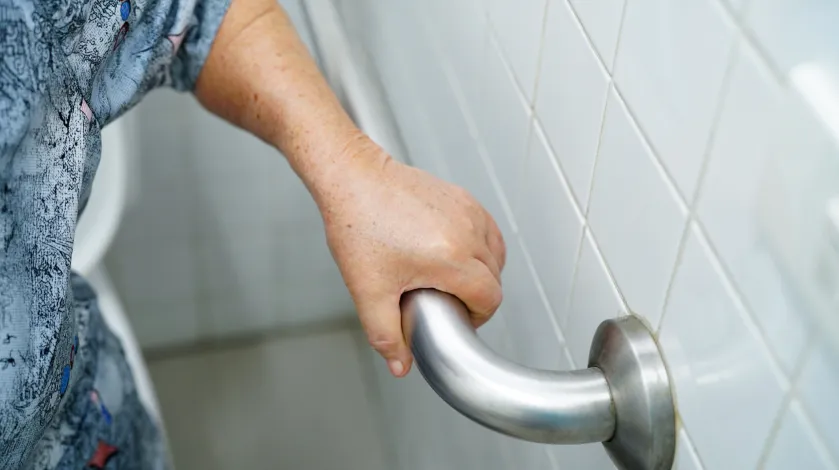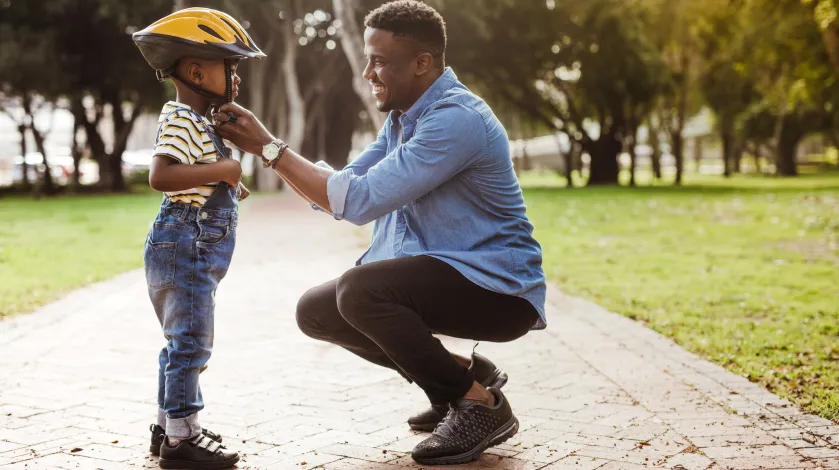Understanding & Preventing Traumatic Brain Injury
Every nine seconds, someone in the United States suffers traumatic brain injury (TBI), with approximately 190 Americans dying each year from TBI.
March is Brain Injury Awareness Month, a time to shine a light on the effects of TBI and educate the public on safety tips that can help prevent TBI.
What causes traumatic brain injury?
TBI can be caused by a number of different factors, including:
- A forceful bump or blow to the head
- An object piercing the skull and entering the brain
- A jolt to the head or body that causes the brain to move rapidly in the skill
It’s important to note that not all blows or jolts to the head or body result in TBI.
Facts about traumatic brain injury
In the United States, approximately 30% of all deaths due to injury are caused by TBI.
Individuals who survive TBI can experience symptoms for days, weeks, or months. In some cases, TBI can cause permanent disability.
However, most cases of TBI are mild and don’t cause long-term damage.
The most common causes of TBI are falls, firearm-related injury, motor vehicle crash, and assault.
Important information about concussions
A concussion is a type of TBI that occurs from a jolt or blow that causes the brain to bounce around or twist in the skull.
While concussions are “mild” in that they’re not life-threatening, they can be quite serious.
Concussions can affect individuals of all ages, but they are a particular risk for young athletes.
The CDC, through its HEADS UP program, offers a number of helpful resources on concussions:
The CDC also offers free HEADS UP online concussion training for youth sports coaches.
Traumatic brain injury and the importance of falls prevention
As mentioned above, falls are a leading cause of TBI.
While anyone can fall, older adults are most at risk – specifically those 75 years old and older.
Remember: falls can be prevented!
To help raise awareness of the dangers of falls and the importance of active safety measures, the CDC launched the Stopping Elderly Accidents and Death Injuries (STEADI) Initiative.
STEADI recommends the following measures to reduce fall risk:
- Stay active to help improve strength, conditioning, and balance. South Shore Health offers various Community Exercise Programs for all ages and abilities. Speak to your primary care provider (PCP) before beginning a new exercise regimen.
- Wear proper footwear outside and indoors. If you are uncertain what footwear is best, talk to your PCP.
- Review all medications, including supplements and over-the-counter medications, with your pharmacist and care providers.
- Get annual vision screenings. Eye exams can detect and often correct or treat vision concerns.
- Make your home safer by removing hazards like clutter, cords, and throw rugs. Add lighting in high-traffic areas like hallways and install handrails and grab bars in the bathroom. Consider investing in a fall alert/call system.
- Discuss any falls or concerns of falling with your PCP. Your provider may recommend a physical therapy evaluation for strength and balance.
Safety tips for driving and other activities
While falls are a leading cause of TBI, they occur elsewhere as well.
The safety tips below cover driving or riding in a car, sports, and other activities.
- For children, always use appropriate car seats and booster seats until a seat belt fits them. Adhere to the car seat's guidelines and recommendations before advancing your child to the next car seat and/or positioning. Make sure that car seats are properly installed per manufacturer guidelines and the vehicle’s manual.
- Children should not ride in the front seat until they turn 13 years old.
- Make sure all vehicle occupants are wearing seatbelts and that those seatbelts are properly fastened.
- Put the phone down! Do not be a distracted driver.
- Never drive or do other high-risk activities while impaired.
- Wear helmets and other recommended protective gear when playing sports, riding a bike or skateboard, and skiing or snowboarding.
- Play it safe! Do not take risks. Use your best judgment to avoid injury.








